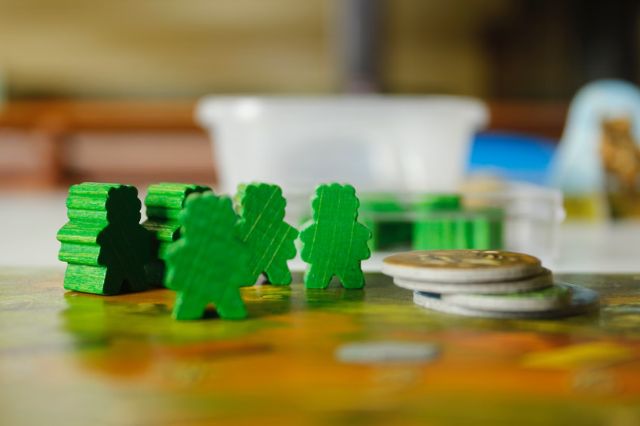The Strategic Edge: How Table Games Sharpen Professional Skills

In the professional arena, success often hinges on an amalgamation of hard and soft skills. Interestingly, the world of table games, often relegated to leisurely pursuits, can be a surprising yet effective training ground for honing these essential skills.
This article delves into how table games, from chess and Monopoly to Scrabble and card games, can be instrumental in developing capabilities that are crucial for career advancement.
Strategic Thinking and Problem-Solving
Chess, a timeless table game, exemplifies strategic thinking. Each move on the chessboard requires foresight, planning, and the anticipation of opponents’ strategies. These are directly translatable to the business world, where strategic planning and problem-solving are invaluable.
By playing chess, professionals can enhance their ability to foresee potential challenges and devise effective strategies, a skill paramount in leadership and management roles.
Risk Assessment and Decision-Making
Games like poker and Monopoly teach players to evaluate risks and make decisions based on incomplete information. In poker, players must constantly assess the risk versus reward of each hand, akin to making business decisions under uncertainty. This also works for those who try Bitcoin casino blackjack or other card games.
Similarly, Monopoly encourages players to make investment decisions and manage resources efficiently. These games cultivate a mindset that is comfortable with ambiguity and adept at making informed decisions, a trait highly sought after in many career paths.
Teamwork and Communication
Many table games are not solitary endeavors; they require teamwork and effective communication. Games like Codenames and Pictionary necessitate understanding team dynamics and communicating ideas under constraints.
These skills are directly applicable in the workplace, where teamwork and clear communication are essential for project success and fostering a collaborative environment.

Adaptability and Learning from Failure
Adaptability is a critical skill in the ever-changing business landscape. Table games often involve unpredictable elements, requiring players to constantly adapt their strategies. This mirrors the professional world, where adaptability and resilience are key to navigating unforeseen challenges.
Additionally, losing in games provides a safe space to learn from failure and develop a growth mindset. This trait is invaluable for personal and professional development.
Attention to Detail and Concentration
Games like Scrabble and Settlers of Catan demand keen attention to detail and sustained concentration. Scrabble challenges players to be observant and think creatively under time constraints, while Settlers of Catan requires meticulous resource management and planning.
These skills are beneficial in any career. However, they are especially important for roles that require analytical thinking and meticulous attention to detail.
Networking and Social Skills
Table games also offer a platform for networking and developing social skills. Engaging in a friendly game can break down barriers and foster connections that may prove valuable in professional settings.
The casual and interactive nature of table games encourages open communication and relationship building, skills that are essential in networking and career development.
To Sum Up
The intersection of table games and professional skill development is an area ripe with potential. By engaging in these games, individuals can sharpen a variety of skills that are crucial for career advancement.
From strategic planning to effective communication, the benefits extend far beyond the game table. Thus, incorporating table games into team-building activities or personal development plans can be a novel and enjoyable way to enhance professional capabilities.
As the professional world continues to evolve, the timeless lessons learned from the game table remain ever-relevant, offering a unique and engaging approach to skill development.


